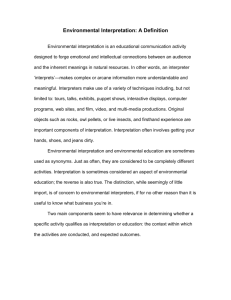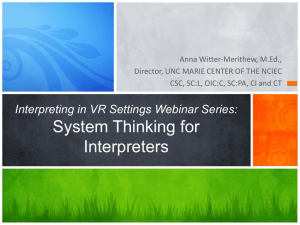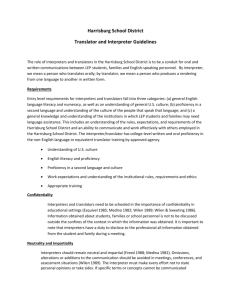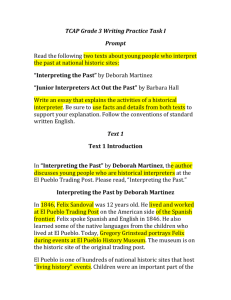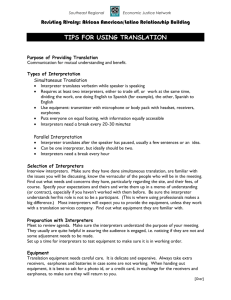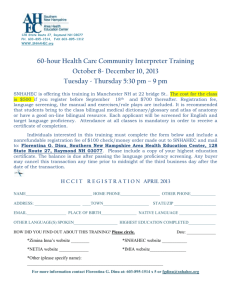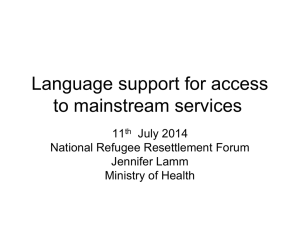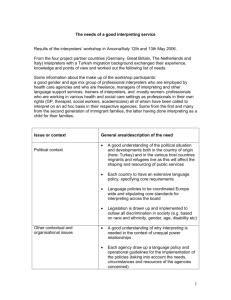File - Amanda Coffey
advertisement
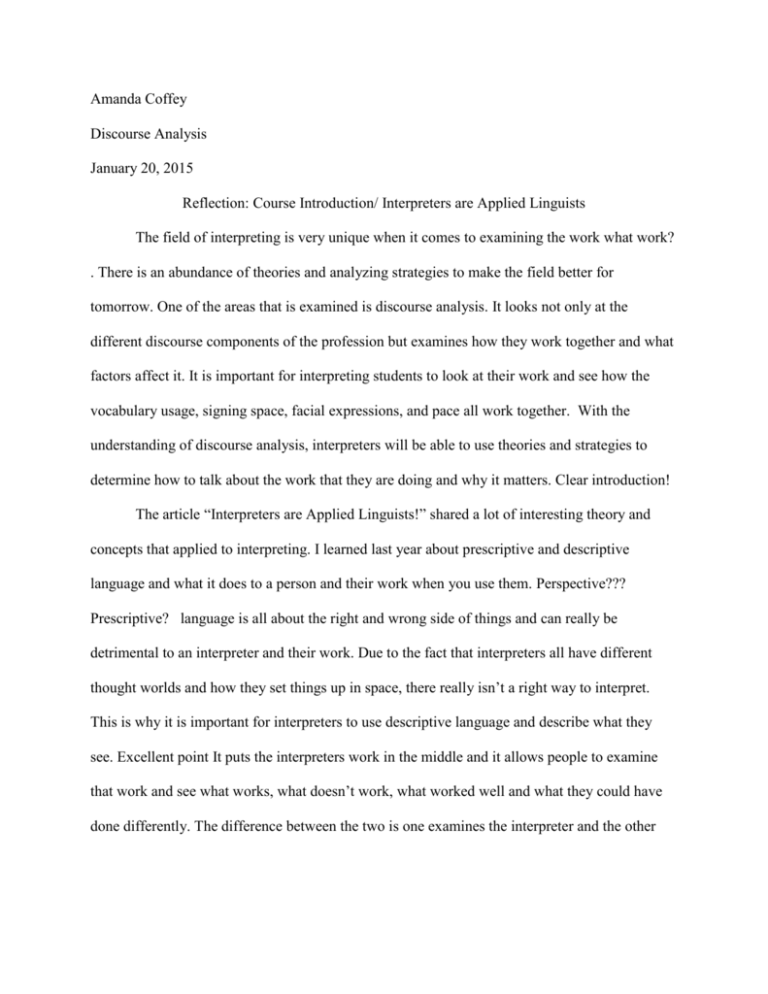
Amanda Coffey Discourse Analysis January 20, 2015 Reflection: Course Introduction/ Interpreters are Applied Linguists The field of interpreting is very unique when it comes to examining the work what work? . There is an abundance of theories and analyzing strategies to make the field better for tomorrow. One of the areas that is examined is discourse analysis. It looks not only at the different discourse components of the profession but examines how they work together and what factors affect it. It is important for interpreting students to look at their work and see how the vocabulary usage, signing space, facial expressions, and pace all work together. With the understanding of discourse analysis, interpreters will be able to use theories and strategies to determine how to talk about the work that they are doing and why it matters. Clear introduction! The article “Interpreters are Applied Linguists!” shared a lot of interesting theory and concepts that applied to interpreting. I learned last year about prescriptive and descriptive language and what it does to a person and their work when you use them. Perspective??? Prescriptive? language is all about the right and wrong side of things and can really be detrimental to an interpreter and their work. Due to the fact that interpreters all have different thought worlds and how they set things up in space, there really isn’t a right way to interpret. This is why it is important for interpreters to use descriptive language and describe what they see. Excellent point It puts the interpreters work in the middle and it allows people to examine that work and see what works, what doesn’t work, what worked well and what they could have done differently. The difference between the two is one examines the interpreter and the other examines the work the interpreter does. Practicing using descriptive language will allow us to learn from each other in a non-judgmental way while still being critical of the work that we do. The discussion of presumptiveness is something we all do whether or not we like to admit it. We presume things based on what we see or hear and ultimately judge the person. Winston (2015) describes this experience by saying: “From these presumptions, we immediately begin to categorize those we meet, work with and live among” (p.2). As interpreters, we will be dealing with all types of people and it is easy to create categories in our minds and place the people we meet into these categories. The issue that can arise is that each person is unique and by using this category system can later come back and bit?? us in the behind. If we categorize all deaf African Americans as being loud fast signers who use limited language and we come across a deaf client that is the exact opposite of what we presume, our interactions can be difficult. Why? Please expand on this type of broad, general statement with a specific example in future Being open minded is crucial for interpreters and being able to take what we see and place each person in their own categories will benefit us in the long run. We have to force ourselves to do the exact opposite of what we want to do and treat every situation in a unique way. Astute point! The whole reasoning behind this article is for interpreters to examine how they think about their interactions they have with people and about themselves. Interpreters need to be able to think critically and analytically about their work and about the clients they interact with. The process of critical thinking takes time and effort and doesn’t happen overnight. Practicing this kind of thought provoking analysis is what makes a successful interpreter. Engaging in discussions about our work with other professional interpreters, reflecting on our interactions with other people and taking what we observe will help find answers or solutions. By practicing this process will help us progress in our field. Due to the fact that Interpreting is a practiced profession, the cycles of analyzing needs to evolved and continue to developed new ways of looking at our work. In order for this change to occur, we must start from the being by mastering the use of descriptive language and eliminate our presumptions about our work. Clear and succinct summary and closing! Amanda. Excellent avoidance of prescriptive language-thank you! It will be important to proofread your work more thoroughly Include your name in your file title for full credit in future References need to be complete--use APA and ask for support from the writing center if needed for these kinds of references Reference Winston, E. (2015). Interpreters are applied linguistics. 1-2 Winston, E. (2015). Introduction to Discourse Analysis for Interpreter. 1-2 References need to provide full information

